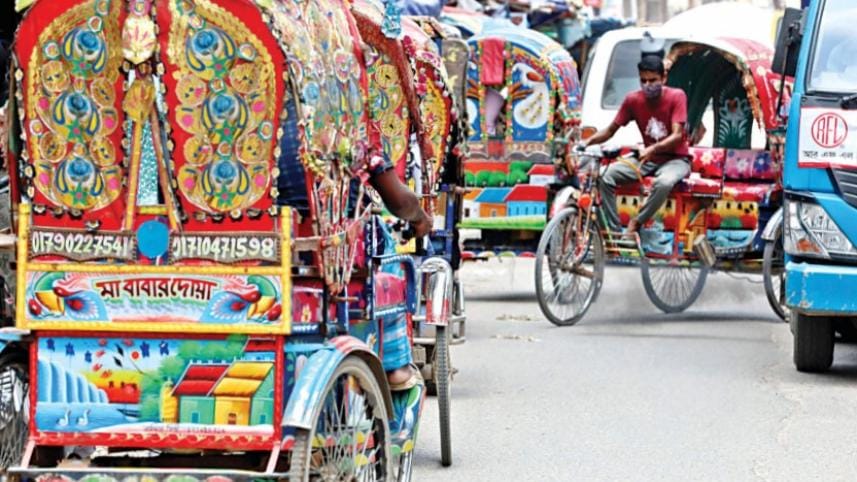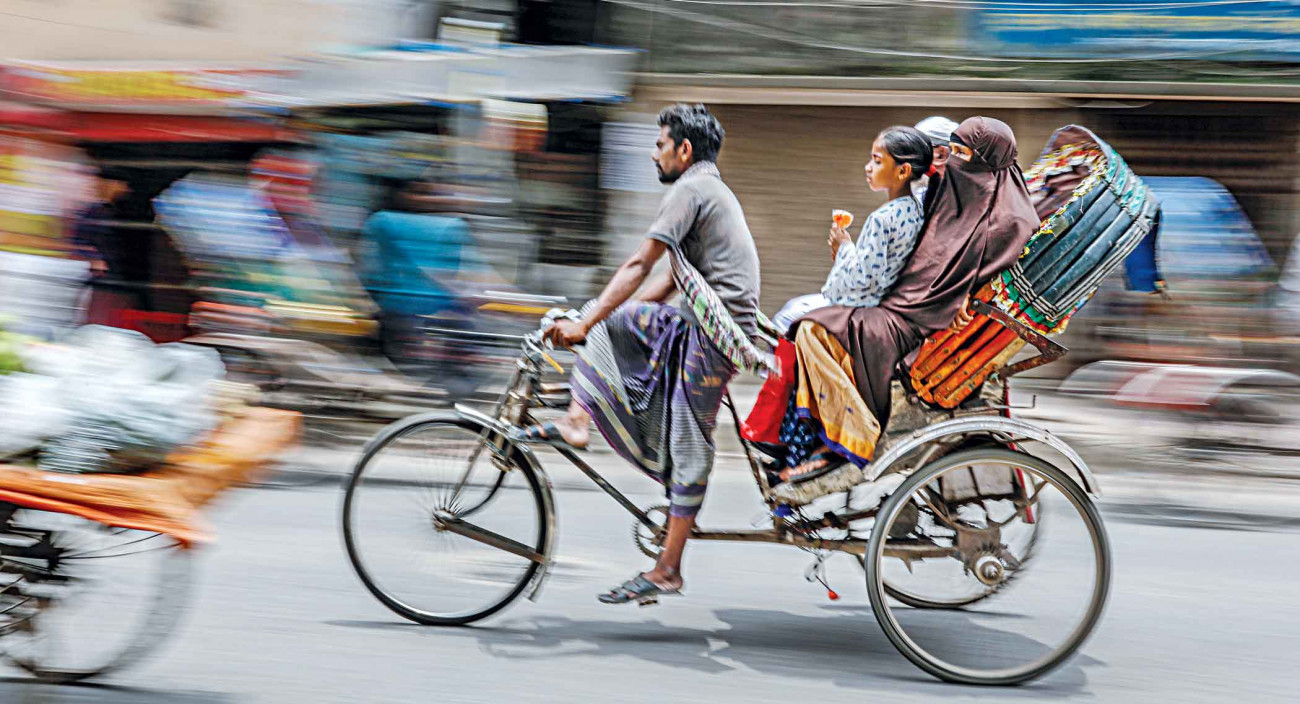Battery-run rickshaws: boon or bane?

The rampant increase of battery-run rickshaws in Dhaka has become a growing concern, significantly changing the city's transport system.
Over the past few years, battery-run rickshaws have multiplied rapidly across Dhaka due to their convenience and affordability.
Although rickshaws have very much been part of Dhaka's uniqueness, their battery-run versions have become quite a headache as their legality and safety are now being analysed along with their impact on traffic congestion.
Since a large number of people's livelihoods depend on it, the authorities are now planning to develop a solution.
For city dwellers, the rickshaws offer a quick and relatively cheap means of travel. But the battery rickshaws pose a security risk due to their weak brakes compared to their high speed. At the same time they are also blamed for traffic congestion.
Dhaka's police commissioner, SM Sazzat Ali, warned at a meeting on January 21, that it would make movement within the city near impossible in future.
The commissioner explained a plan for discussions with the roads and bridges ministry and other relevant authorities to address the problem.
Sazzat emphasised the necessity of introducing a licencing system to cap the number of battery-run rickshaws in Dhaka. "We need to determine how many battery-run rickshaws the roads can accommodate, and will issue permits accordingly," he said.
He proposed a nominal licence fee, between Tk 100 and Tk 200, which will not only help identify authorised vehicles but also serve as a mechanism to identify rickshaws entering Dhaka from other regions.
However, formulation of a solution may not be easy, as there are legal hurdles.
For instance, the traffic police have no clear guidelines regarding these rickshaws and as such struggle to control them on the major roads.
These battery rickshaws are linked with numerous accidents and said to be behind the recently increasing road congestion, further exacerbating the already overburdened road infrastructure in Dhaka.
These vehicles serve as crucial transport option for lower-income groups who cannot afford more expensive modes of travel. Removing them from the streets may create economic hardship for both the riders and the drivers as well as those dependent on these vehicles.
Among the several measures proposed to control these battery rickshaws, besides licencing, is collecting taxes and enforcing stricter traffic rules to ensure compliance.
Some suggest designated zones or routes, limiting their presence on major roads.
Ultimately, the fate of battery-run rickshaws in Dhaka hinges on striking a delicate balance between regulation and accommodation.
Any solution must take into account the livelihoods of those dependent on these vehicles while ensuring that their operation does not undermine public safety or hamper the city's transport system.




 For all latest news, follow The Daily Star's Google News channel.
For all latest news, follow The Daily Star's Google News channel. 
Comments